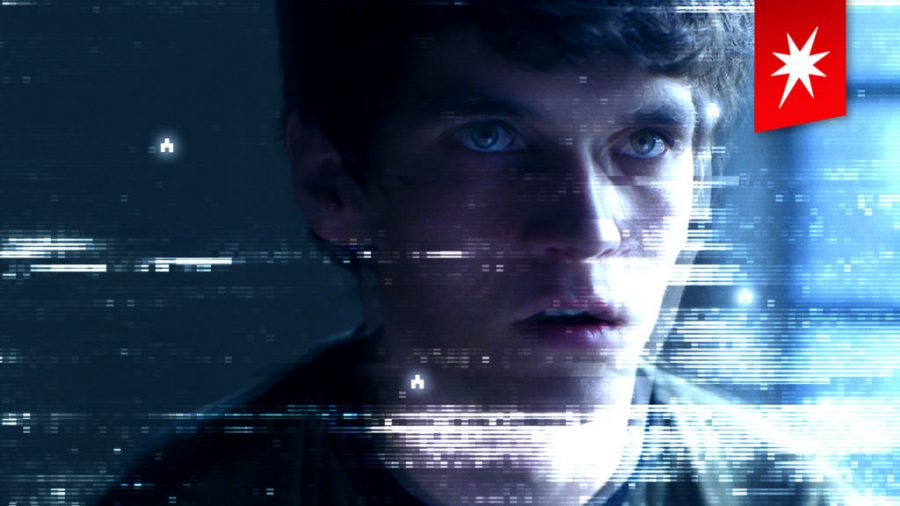Does this ballsy attempt at video game merging with TV receive a 5 out of 5, or should we go back and try again?
Charlie Brookers highly successful Channel 4 turned Netflix original series Black Mirror has come out with another showstopper in the form of Bandersnatch. It has been praised for its take on a new form of media experience, an online interactive ‘choose your own adventure’ style film, as well as its gritty and highly self-aware storyline. The first of its kind on this scale to a mass audience, the film is a wildly compelling and interesting experience both for those who have watched Black Mirror and for those who have not. But does this necessarily mean that interactive TV is the way of the future?
Based in the 1980s, the story focuses on Stefan Butler (Fionn Whitehead), a young video game programmer who approaches video game publisher and developer Tuckersoft with a demo for his new game ‘Bandersnatch’. We follow Stefan, a vulnerable young man crippled by the death of his mother as he slowly begins to believe that someone or something is controlling his every decision… The film allows the viewer to make choices in Stefan’s everyday life, which show onscreen for a maximum of ten seconds, with Netflix making the decision for you should you choose not to. As you get further and further into the film, however, you are told that you have made the incorrect decision, and you are sent back to the last choice you made to explore the other option.

During his time at Tuckersoft he meets his idol Colin Ritman (Will Poulter), a famous video game designer, with Stefan stating he has ‘played all of his games’. The further Stefan gets into the development of his game, with looming pressure of its impending deadline, he begins to tell his father and therapist that he is not in control, that someone is controlling him. Meanwhile, Colin starts to talk about alternate realities where we can go back and ‘try again’ if we have made the wrong decision.

Taking inspiration from the book Bandersnatch’s author Jerome F. Davies, Stefan slowly starts to descend into madness, or ‘the hole’ as Colin refers to. This inspiration results later in some rather gory scenes involving the deaths of some of those closest to Stefan, as his life starts to mirror Davis’, who murdered his wife whilst writing the book Bandersnatch.
Other storylines involve Stefan realising that he is being watched by viewers of Netflix, resulting in some hilariously meta sequences, whilst some endings to the story involve Stefan completing his game but much to the disappointment of the critics, encouraging you to ‘try again’. In a very Black Mirror style, little of the available endings are happy ones for Stefan, with a total of around ten endings as well as a ‘secret ending’.
Interestingly, the film seems to take real-life inspiration from the game Bandersnatch, a game intended for release on the ZX Spectrum console in 1984 that was later abandoned due to its complexity and was reinterpreted by another company, as it led its game developer Psygnosis going into bankruptcy. The real-life inspiration for the film, as well as its link to the choose your own adventure style books popularized in the 80s clearly stems from writer Charlie Brooker’s appreciation for video games and 1980s culture, as the film is set in a believable and beautifully nostalgic 80s British city.
In terms of concept the idea of the film is great, and I would say that is executed fantastically, with the perfect story to keep you interested. The encouragement throughout to ‘try again’ if you make the wrong decision offers much replay value; whilst the official viewing time is 1 hour 30 minutes, a full viewing experience with all endings explored could take twice as long as this. However, because the film is so open-ended and can take so long to complete, many people seem put off completing the rest of the story.
I personally devoured Bandersnatch as being a big video gaming junkie, this film was the perfect combination of TV show and an interactive experience that you influence and control. But for some this may seem too complicated and unnecessary, and I can understand that view.
Overall, I think Bandersnatch is a great idea and a great viewing experience that I thoroughly enjoyed. If you put a couple of hours aside to completely immerse yourself in the story and commit to completing it, this film is fantastic and can provide hours of entertainment. However, don’t go into this expecting a linear, clear cut story; it is up to you to decide how Stefan’s life turns out, and which one of these realities is the ‘true’ ending to Stefan’s story.
By Ella Farnsworth

